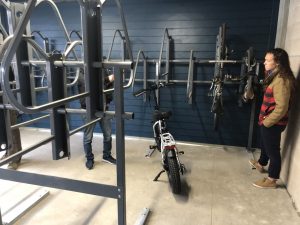How You Work May Never Be The Same
2020 is not off to the start many of us expected. Anxiety is high and social distancing restricts much of what we rely on. But I have some good news: The way we work may never be the same.
Recent efforts to fight the spread of the coronavirus means the number of people working from home—also known as “telecommuting” or “remote work”—has skyrocketed.
This time last year, only about 11% of employees were telecommuting. Most people (76% , according to 2019 Atlanta Regional Commission commute data) were driving alone to work every day. Despite advances in technology, the 9-to-5 office “workweek” remains the same as it was in the 1960s. We haven’t tapped into the power of virtual connectivity on a large scale yet. Until now, of course.
And while this may feel like a forced experiment, it is also a tremendous opportunity. Imagine what could happen if working from home just one day a week becomes the new normal.
Of course, not everyone can or will choose to telework. Service and industrial jobs don’t have the luxury. But everyone who does will benefit both themselves and everyone else.
People who work from home will save 168 hours every year. That’s seven full days every year to spend with family, work or relax, rather than drive a car. That change could decrease traffic deaths and congestion. Lead to reduced carbon emissions directly and from less traffic. Save businesses and families money.
But will companies keep their employees teleworking once this crisis is over? Yes, though it probably won’t be for five days a week for weeks at a time.
Many local organizations have already been encouraging telework. Mercedes-Benz USA and Cox Enterprises both use part-time remote work to recruit and retain the best people. However, many companies worry about making such a big shift in their cultures. Even experienced managers need training to connect their teams from a distance. The transition to remote work is not about technology. It’s about leadership.
This is why 2020 could change everything. Organizations that were once slow to change now face a choice: telework or shut down. Employees are being trained and IT systems tested. This isn’t an ideal situation to start teleworking, though, and it’s been bumpy so far (more on that in a second). But if things settle down and people see what’s possible, the workweek could finally step into a new era.
To telework well, meetings need clear agendas. Managers need to set clear expectations. Employees need to be responsible for their performance. These are business practice improvements companies would love to see happen regardless of work locations.
Businesses are having growing pains as they transition to teleworking. It’s hard to put into place quality, sustainable systems. But there are a lot of great resources out there to help you and your colleagues. Businesses and managers must make expectations clear, and teams must communicate effectively. This is a crucible by conference call.
Take the time to build buy-in, make this the new normal, and equip managers for success. Hold dedicated training sessions. Bring in experts. Try things out. Build a formal policy based on what works for your company. Use video calls just to let team members catch up and socialize.
The most important thing for everyone to remember: This is not an optimal situation. Be patient with each other. You or your colleagues may be stuck balancing work and taking care of children. Everyone is stressed that they will get sick or a loved one will. A lot of the ordinary “rules” for good telework practice are going to be bent or broken. The hours that people will be available may change day-to-day.
But if we do this teleworking thing right, it will improve our jobs and our quality of life. Less stress. Less pollution. More time with family. Better employee productivity.
The reality of work in 2021 may be something to celebrate.

Author: Johann Weber
Sr. Program Specialist, UrbanTrans
This article was originally written for and published by Reporter Newspapers, a community news outlet based in metro Atlanta.




